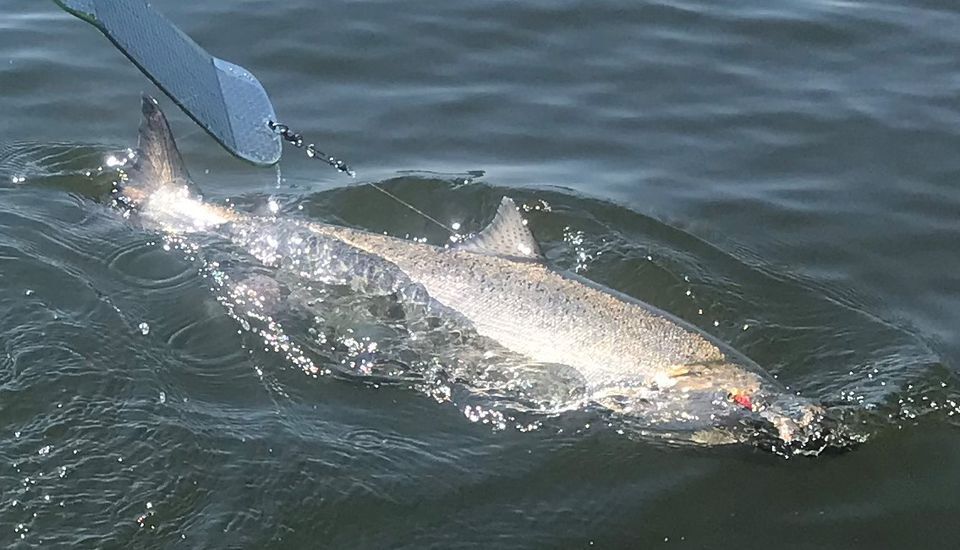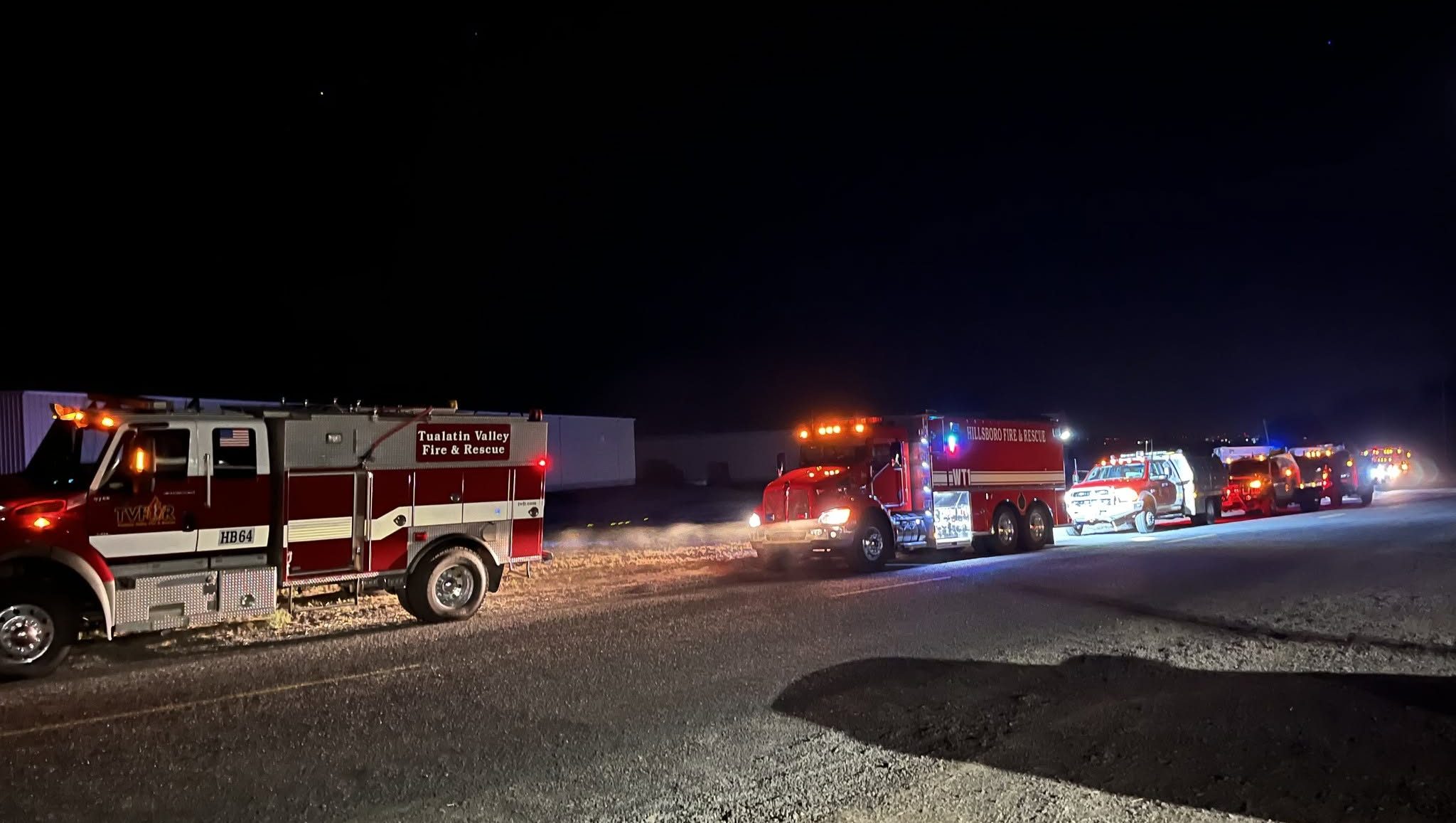Snake River dam removal impacts debated in Congressional hearing led by Bentz
Published 9:00 am Thursday, December 14, 2023

- A leaked draft settlement highlighted arguments both for and against breaching the four lower Snake River dams as a way to recover threatened and endangered Snake River salmon and steelhead that are well familiar to those who follow the issue.
WASHINGTON, D.C. — Oregon U.S. Rep. Cliff Bentz, R-Ontario, led a congressional hearing Dec. 12 to discuss what he called the Biden administration’s destructive effort to ultimately remove the four lower Snake River dams in southeastern Washington as part of efforts to protect and restore endangered salmon and steelhead.
Most of the witnesses testifying in the natural resources hearing in the nation’s capital expressed concerns that removing the dams would lead to higher utility rates for electricity customers of the Bonneville Power Administration, impacts to river navigation and additional costs to offset the loss of the dams.
Bentz, who opposes breaching Ice Harbor, Lower Monumental, Little Goose and Lower Granite dams, said the potential settlement agreement that would remove the dams would harm electric ratepayers, businesses and communities who rely on commerce within the Columbia Basin.
“We are now facing a U.S. government agreement that could be devastating for Northwest electricity consumers,” said Scott Simms, CEO and executive director of the Public Power Council, a trade group representing the interests of nonprofit consumer-owned electric utilities in the Pacific Northwest. “We anticipate under the best case scenario the impact to rates would be 5% and in the worst case it would be 50%.”
Bentz, who represents much of Oregon east of the Cascades, is chair of the House Natural Resources subcommittee on Water, Wildlife and Fisheries.
“Today’s congressional hearing called out the Biden administration for engaging in secret discussions to breach the four lower Snake River dams, to impose upon the people of the Northwest billions in costs to replace thousands of megawatts of clean reliable power generated by these dams, and, if that was not enough, to force the people of the Northwest to inequitably pay billions in higher utility rates under the guise of building fish runs to levels not seen in centuries,” Bentz said.
Mediation efforts, he said, should have included representation from ratepayers, irrigators, navigational interests and communities dependent upon the flow of commerce up and down the Columbia and Snake rivers.
“We are tired of not being represented in this mediation process,” said hearing witness Neil Maunu, executive director of the Pacific Northwest Waterways Association, which supports navigation, energy, trade and economic development in the region. “We are tired of not being able to take part in meaningful negotiations, but we refused to be sidelined.”
Lindsay Slater, vice president of government affairs for Trout Unlimited, a fish conservationist group, talked about how the dams, built in the 1960s and early 1970s, have affected anadromous fish.
“We concluded the dams were the problem by looking at salmon populations that pass through three dams that are doing much better than salmon populations that pass through eight,” said Slater, who had previously served as chief of staff for Rep. Mike Simpson, R-Idaho. “Salmon need a river, not a series of warm, slow moving legs. To allow salmon to go extinct, we are breaking the covenant with the Pacific Northwest sovereigns. This covenant is not an implied responsibility to the tribes, it is the explicit legal obligation and treaties that is enshrined in the U.S. Constitution.”
Simpson has advocated for the removal of the lower Snake River dams to protect historic salmon runs and other fish species from extinction. In a plan called the Columbia Basin Initiative, Simpson called for replacing the lost power source with alternative forms of energy.
Rep. Jared Huffman, D-California, the ranking member of the subcommittee, also spoke on the need to protect fish populations as part of treaty obligations to Native American tribes.
“Today, the Columbia River Basin, which was once abundant with salmon, is facing decimated populations with numerous tribes at risk of losing a significant component of their culture and their sustenance,” Huffman said. “The federal government has a legal and moral responsibility to honor the promises it made in treaties and that’s why we’ll hopefully see, as a result of the settlement discussions happening now between the federal government and Tribal nations, a resolution.”
The natural resources subcommittee hearing comes in the wake of a leaked secret mediation document titled “U.S. Government Commitments in Support of the Columbia Basin Restoration Initiative and in Partnership with the Six Sovereigns.” The confidential mediation document was released by four Republican lawmakers from the Pacific Northwest, including Bentz, on Nov. 29.
The mediation stems from a lawsuit filed by several environmental groups and tribes against the federal government over its management of the four lower Snake River dams. Federal mediators and the White House Council on Environmental Quality have been meeting with the plaintiffs and defendants in an attempt to reach an agreement on how to improve salmon populations along the river.
The mediation document discusses the steps the federal government would take to mitigate the breaching of the lower Snake River dams, contingent on Congress authorizing removal of the dams. The mediation document does not directly call for the breaching of the dams, but breaching is an option that could be considered, according to the document.
A potential settlement agreement was expected to be announced Dec. 15.









